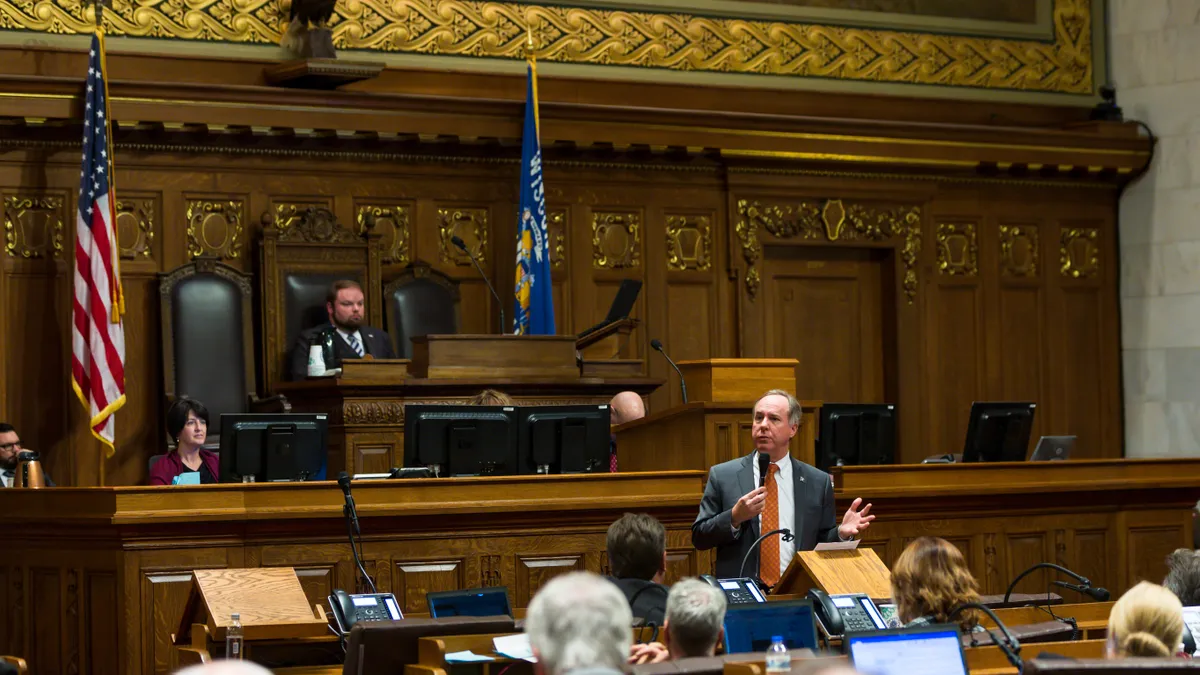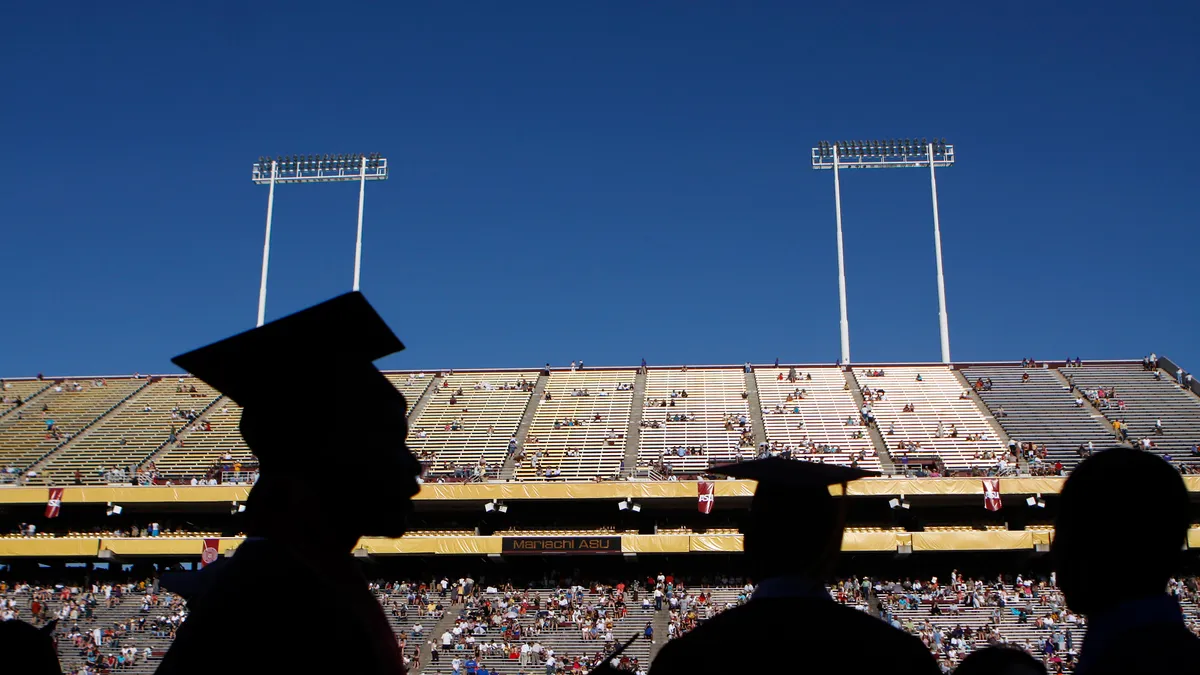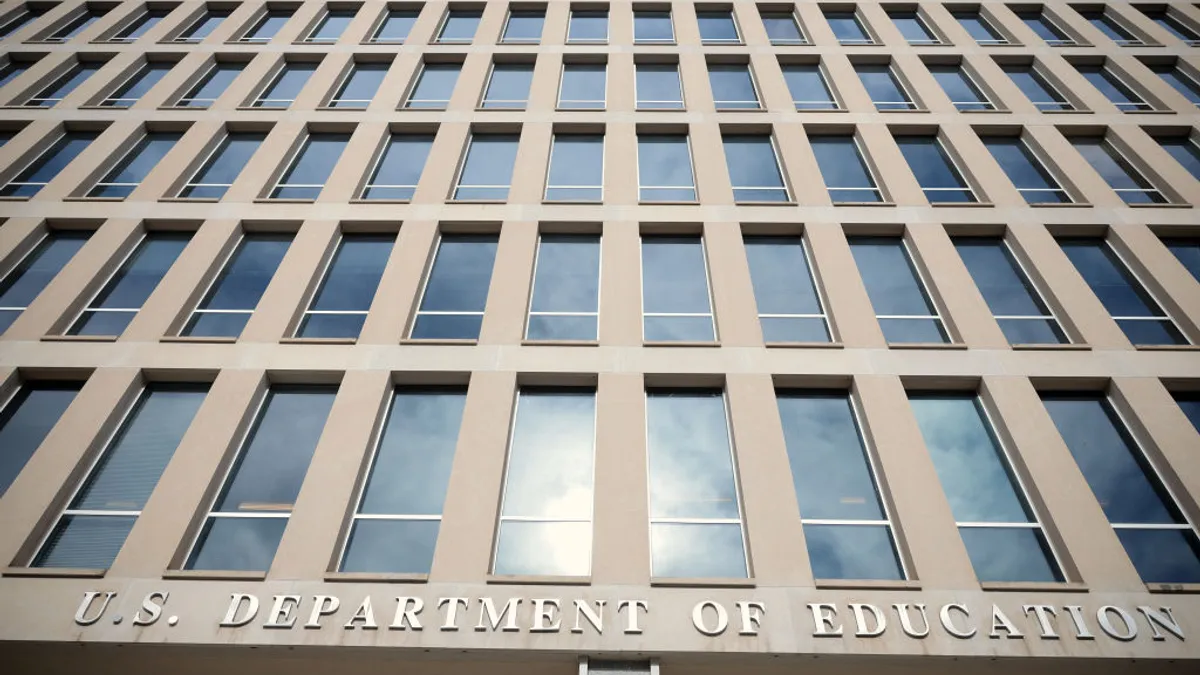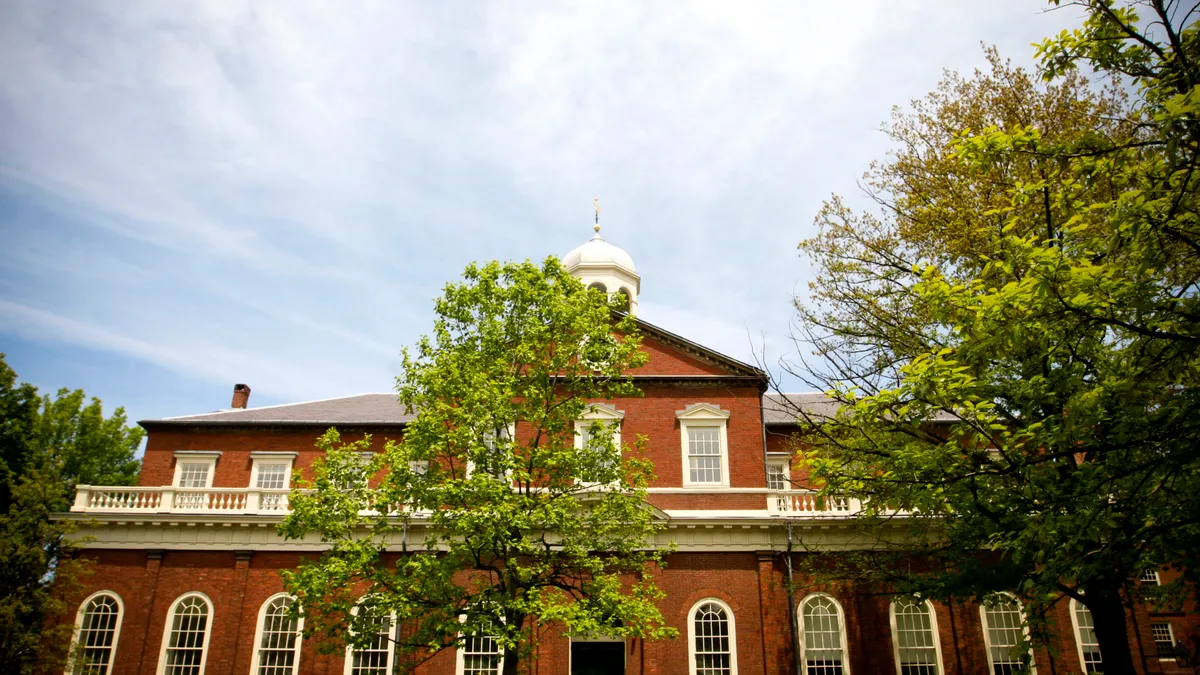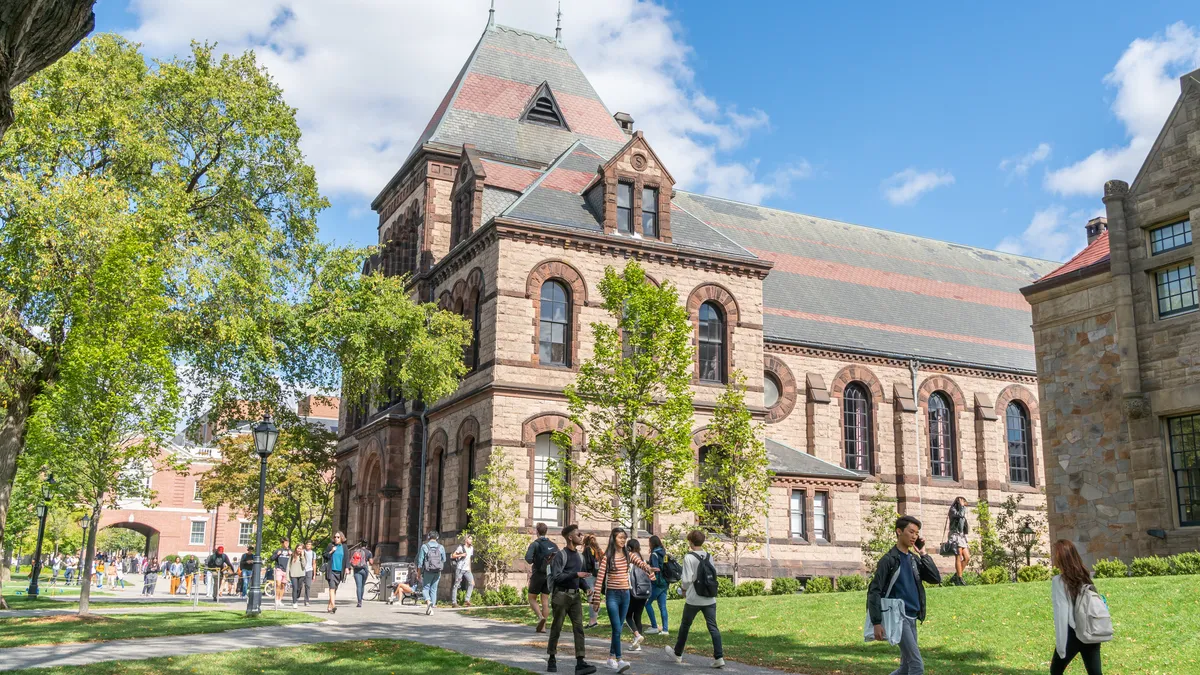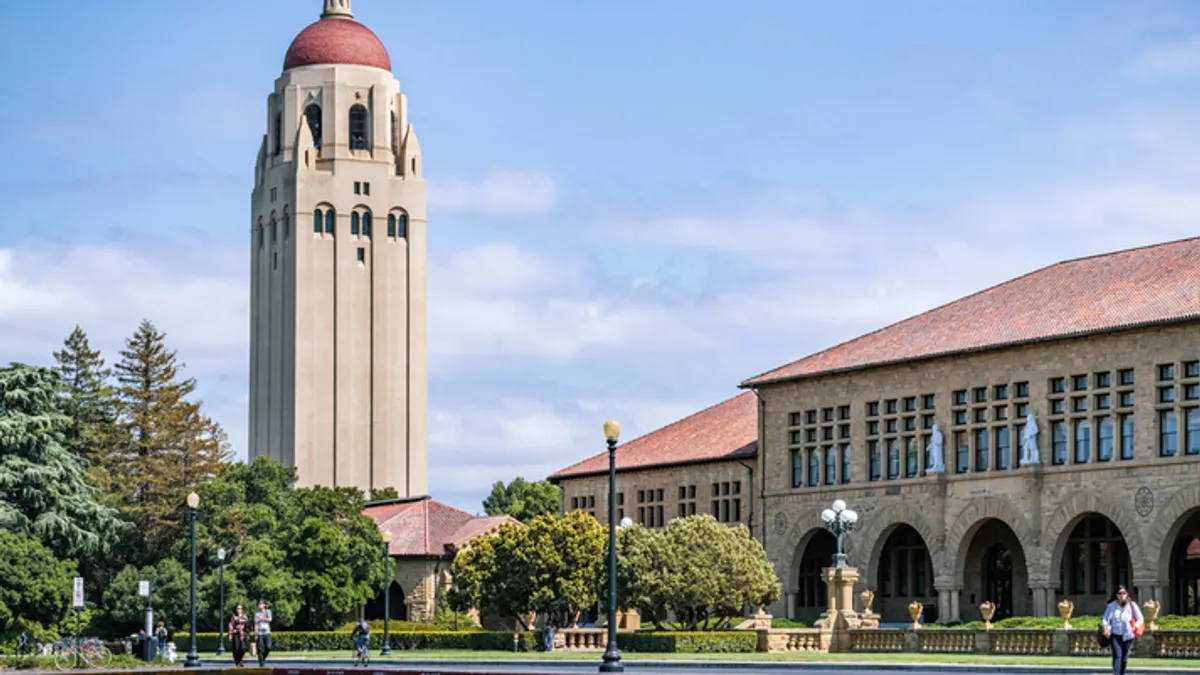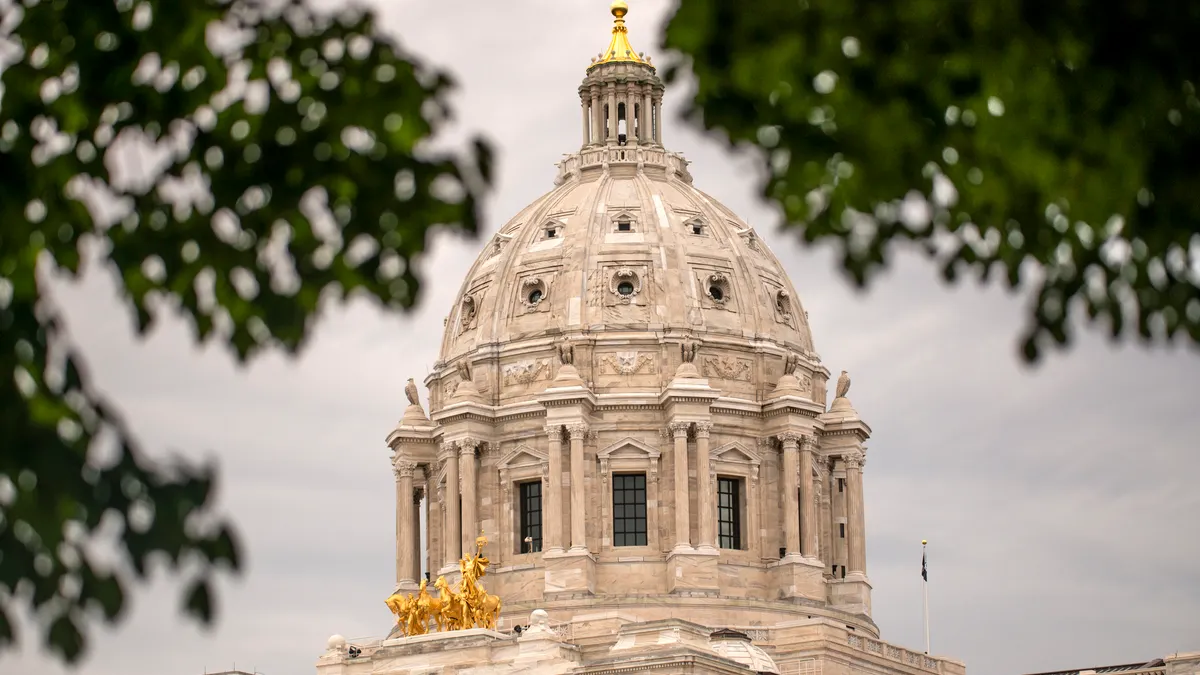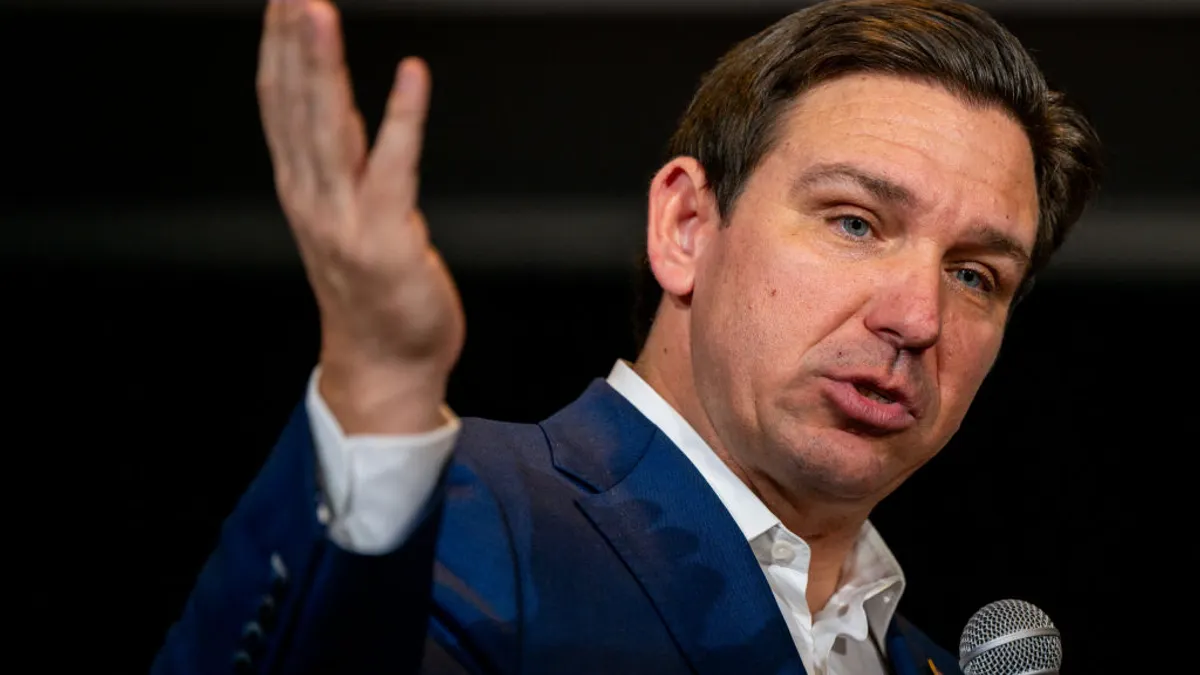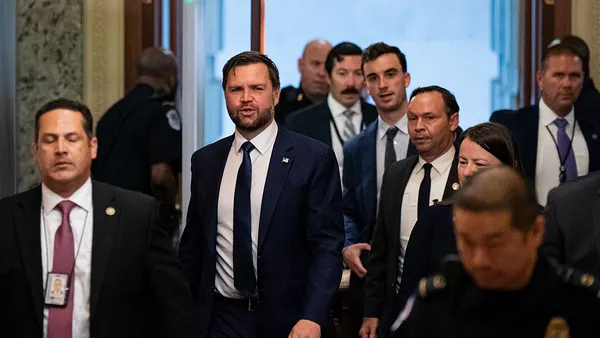Wisconsin Republicans who are heaping criticism on the new chancellor of the University of Wisconsin-Madison — a career academic — reflect escalating rhetoric against self-governance and other established higher education practices, leadership experts say.
This emboldened anti-academic movement has policy consequences in state houses and practical implications for those charged with making universities run smoothly, they say. Higher ed is being treated less and less as a public good. And likely, fewer prospective presidents are willing to step up to take these executive jobs amid the political squalls, especially at high-profile public institutions.
Jennifer Mnookin, who is currently dean of the University of California, Los Angeles, School of Law, was Monday unanimously named the 30th chancellor of Wisconsin’s flagship public institution. She will begin her tenure Aug. 4, replacing Rebecca Blank, who will become president of top-ranked private nonprofit Northwestern University.
By any measure, Mnookin is a mainstream academic with a strong curriculum vitae, having earned her Juris Doctor at Yale University and later a doctorate in social study of science and technology from the Massachusetts Institute of Technology. Law deans are often attractive for presidential search committees because they're familiar with core executive responsibilities like regulatory affairs, fundraising and alumni relations.
But almost immediately after Mnookin’s appointment was made public, powerful Republican state legislators began denouncing her.
Wisconsin Assembly Speaker Robin Vos called for the University of Wisconsin System's board of regents to reconsider her selection, describing the pick as blatantly partisan. In a statement, Vos linked to an essay Mnookin wrote supporting California colleges mandating the coronavirus vaccine and Federal Election Commission records showing she made political contributions to liberal causes.
Steve Nass, vice chair of the Wisconsin Senate's Universities and Technical Colleges Committee, tied Mnookin to the “forced indoctrination” of college students with critical race theory, a decades-old academic framework that has emerged as a Republican boogeyman. Nass insinuated the GOP could limit public funding to UW-Madison and block tuition increases as a result of Mnookin’s selection.
Mnookin said in an emailed statement she has not yet met with Vos but looks forward to doing so when she arrives in Wisconsin in the summer.
“I plan to work with all members of the state legislature, regardless of party, to help meet our common goal of moving the university and the state forward,” Mnookin said.
She largely avoided addressing the controversy at a virtual news conference Tuesday. The regent board’s vice chair said during the event she does not think reducing funding for UW-Madison is realistic.
A spokesperson for the University of Wisconsin System, Mark Pitsch, drew attention to the regents’ unanimous vote to select Mnookin, noting board members were appointed by both Democratic and Republican governors.
“The UW board of regents selection process for chancellors and the president is rigorous and well-considered, and has resulted in a talented, diverse group of leaders at universities across Wisconsin, including Chancellor-designate Mnookin,” Pitsch said in an email. “We look forward to her arrival at UW-Madison.”
New partisanship
College presidential searches elsewhere have long been politicized, with chief executive jobs sometimes serving as landing pads for outgoing politicians. Sonny Perdue, a former Republican governor of Georgia and Trump administration official, recently took over the University System of Georgia amid heavy student and faculty criticism. Perdue does not have any higher ed administrative experience.
And Wisconsin Republicans have long leveraged higher ed-centered decisions to score political points. Former Gov. Scott Walker in 2015 weakened tenure protections at the state’s public institutions ahead of a run for the U.S. presidency. This was widely considered a strategy to endear himself to a GOP base mistrustful of higher ed.
Republican candidates for Wisconsin governor and attorney general have in turn smeared Mnookin as the state’s primary elections loom in August.
The Wisconsin Conference of the American Association of University Professors denounced the rapid attacks against Mnookin, saying in a statement it will not engage with their substance because they are "grounded in corrosive right-wing conspiracy theories." The threats against the system's funding are "unacceptable political interference,” the AAUP said.
Policymakers explicitly assailing higher ed is a manifestation of a political party defined by former President Donald Trump, said Brendan Cantwell, a higher education professor at Michigan State University.
“This is part of a political process that claims to be sort of reining in institutions to be accountable to democratically elected legislatures,” Cantwell said. But in reality, the partisanship distracts from higher ed’s social mobility mission, he said.
Effects on presidential searches
Republican attacks on higher ed are no longer confined to certain controversial topics, but have grown into a generalized complaint against the status quo, Cantwell said.
These continual political pressures will likely dissuade prospective presidents from seeking top positions, said Jorge Burmicky, a higher education professor at Howard University.
Running an academic enterprise already presents a massive challenge, Burmicky said. The average presidential tenure is shortening, according to the American Council on Education. Where in 2006 it was 8.5 years, in 2017, it fell to 6.5 years, ACE’s most recent data shows.
Presidents having to respond to “the flavor of the month” in politics places more responsibility on them and doesn’t foster a healthy organization, Burmicky said. That’s especially true if leaders are targets of partisan movements, he said.
Burmicky said this trend could potentially contribute to a rise in closed searches, in which colleges don’t unveil candidates' names until the final stages of a presidential hunt — or even until one is chosen.
In fact, closed searches have proliferated in recent years. About three-fifths of private colleges and roughly one-quarter of public colleges conduct closed searches, according to a recent American Association of University Professors report.
Campuses, especially public ones, ideally would want open searches, Burmicky said. Open searches are often seen as more transparent and as lending legitimacy to candidates who key constituencies have a chance to vet.
“But who would want to put their name out if they end up being targeted?” Burmicky said.
He said it’s critical to elect lawmakers who focus more on colleges’ mission and less on a political agenda. And legislators are often the ones appointing public colleges’ governing board members, who in turn hire the best-fitting presidents.
“We need to bring it back to how an institution serves the public good,” he said.



